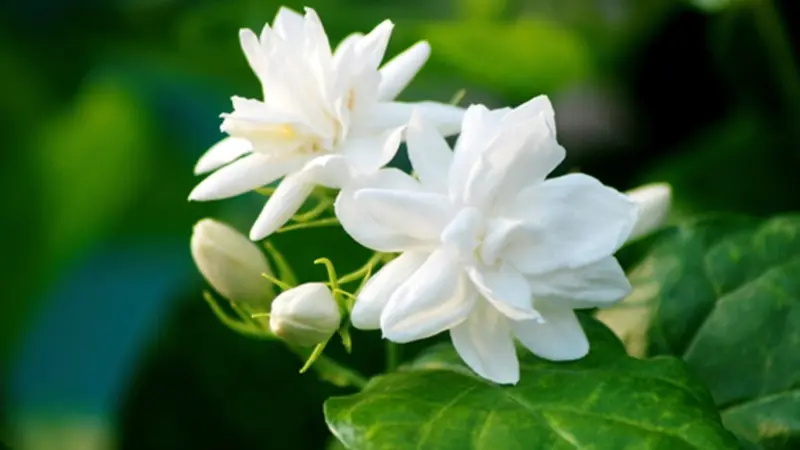**Jasmine Flowers in Balinese Culture: A Fragrant Tapestry of Bali’s Traditions**
Bali, the picturesque Indonesian island known for its stunning landscapes and vibrant culture, is a place where tradition and nature intertwine seamlessly. Among the many symbols that play a significant role in Balinese culture, the Jasmine flower, or “bunga melati” in the local tongue, holds a special place. This fragrant blossom is not merely a botanical beauty but also a symbol deeply rooted in the rich tapestry of Bali’s traditions.
**Symbolism of Jasmine in Balinese Culture:**
In Bali, the Jasmine flower is more than just a pretty bloom; it carries profound cultural and spiritual significance. The sweet fragrance of the melati is believed to attract positive energy and symbolizes purity, simplicity, and sacredness. The Balinese people often use Jasmine flowers in religious ceremonies, traditional dances, and various rituals, where the divine aroma is thought to connect the earthly realm with the spiritual world.
**Jasmine in Religious Ceremonies:**
Bali, known as the “Island of the Gods,” is predominantly Hindu, and the Jasmine flower plays a crucial role in Hindu religious ceremonies. The fragrance of Jasmine is considered an offering to the deities, creating an atmosphere of purity and sanctity during rituals. Balinese Hindus use Jasmine garlands to decorate temples, statues, and religious artifacts, infusing the sacred spaces with a sense of tranquility and divine grace.
**Cultural Festivals and Dances:**
The significance of Jasmine extends beyond religious rituals to cultural festivals and traditional dances. During festivals like Galungan and Kuningan, where Balinese communities celebrate the victory of dharma (good) over adharma (evil), Jasmine flowers adorn homes and public spaces. In traditional dances, performers often wear Jasmine garlands, enhancing the visual and olfactory experience of the audience.
**Weddings and Life-Cycle Celebrations:**
Jasmine is a symbol of purity and love, making it a popular choice in Balinese weddings. Brides often wear Jasmine garlands or have them woven into their hair, symbolizing the sacred bond of marriage. Moreover, Jasmine plays a role in other life-cycle celebrations, such as baby naming ceremonies and cremation ceremonies, where the fragrance is believed to guide the departed soul to the afterlife.
**Cultural Preservation and Tourism:**
As Bali becomes a global tourist destination, the cultural significance of Jasmine has not been lost. Local artisans often incorporate Jasmine motifs into traditional crafts, textiles, and art, preserving the essence of Balinese culture. Visitors to Bali are greeted with the enchanting aroma of Jasmine at temples, markets, and even in luxurious spa treatments, creating an immersive experience of the island’s rich cultural heritage.
**Conclusion:**
In Bali, the Jasmine flower is not just a botanical marvel but a living symbol of the island’s deep-rooted traditions. From religious ceremonies to cultural celebrations, Jasmine weaves its fragrant magic, connecting the people of Bali with their spirituality and cultural identity. As the sweet scent of bunga melati continues to waft through the air, it serves as a reminder of the timeless beauty and resilience of Balinese culture.

